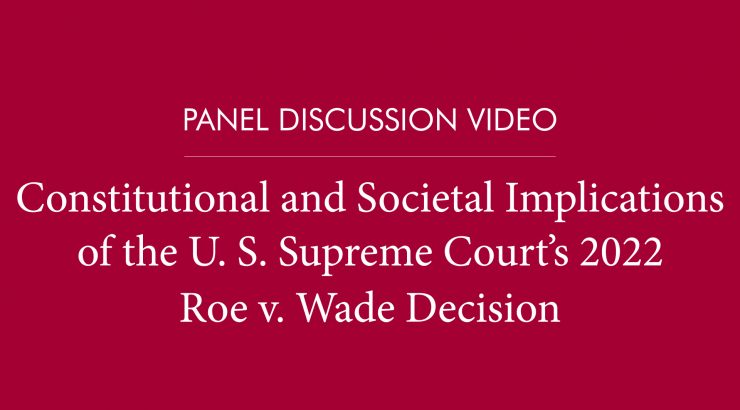
Weighing in on Roe v. Wade in the Dobbs Decision Fowler School of Law’s Dean Cianciarulo on the Supreme Court’s 2022 Dobbs v. Jackson Women's Health Decision.
August 9, 2022
The Supreme Court’s June 24, 2022, decision overturning Roe v. Wade in Dobbs vs. Jackson Women’s Health Organization sent shock waves around the country and, indeed, around the world. This landmark decision will affect people on every side of the complex debate concerning a woman’s right to control her own medical, moral, and reproductive choices. At a June 28 panel discussion with Provost Norma Bouchard and Professors Lori Cox Han and Charissa Threat, Marisa Cianciarulo, Professor of Law and Interim Dean of Chapman University Fowler School of Law, presented her insights into the constitutional and societal implications of this Supreme Court decision.
Dean Cianciarulo used her time on the June 28 panel to present a compelling case that the U.S. Constitution protects an individual’s right to privacy in several areas, including how and whether to worship, when and with whom to associate–and in what capacity, as well as affording individuals’ freedom from unreasonable government intrusions into our homes and property. While the word “privacy” doesn’t appear in the Constitution, Dean Cianciarulo argues that the concept is embedded throughout the document.
Dean Cianciarulo notes that Roe v. Wade left the intensely personal, private decision of whether to continue with or terminate a pregnancy up to a woman and her doctor, conscience and religious beliefs. The Dobbs decision, on the other hand, forces all pregnant women to abide by others’ religious and moral beliefs, irrespective of her position on the issue, her physical and mental capacity for bearing a child, or any other factor that impacts her, her family, and the children she will be forced to bear.
The Dobbs decision, Dean Cianciarulo argues, renders girls and women helpless, mindless, subordinate beings with no autonomy over their bodies. Moreover, the five majority justices’ lack of respect for precedent jeopardizes an alarming array of privacy-based rights that are essential to an inclusive and equitable modern society: The right to birth control, the right to marriage equality, and the right to engage in sex outside of marriage, to name a few.
